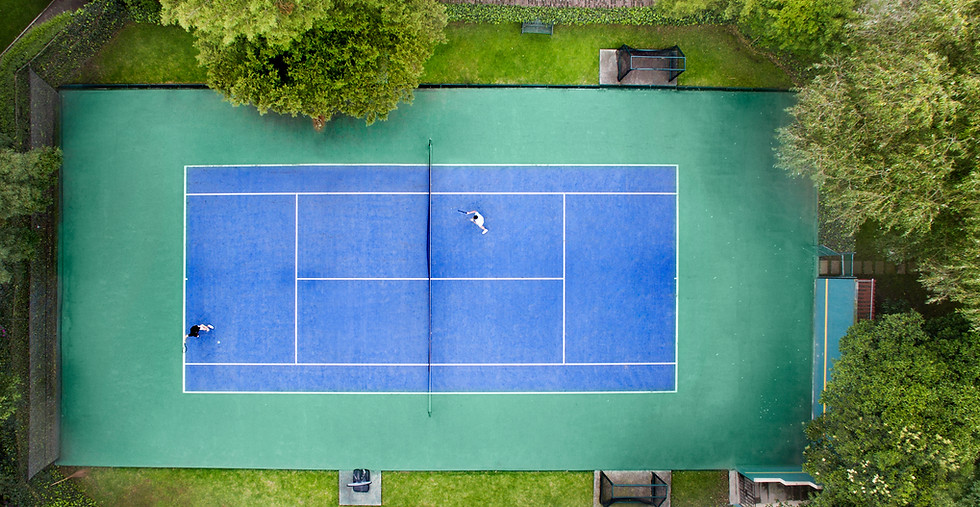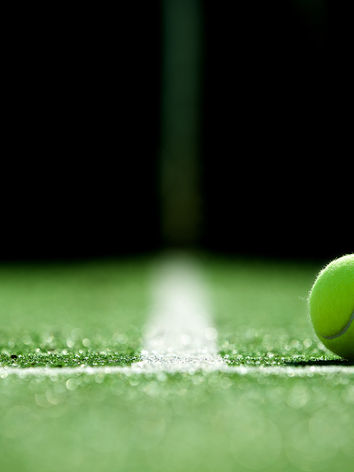Tennis Courts

.jpg)
About artificial tennis grass
Artificial tennis grass comes with a variety of advantages that cater to both players and facility owners. One of the primary benefits is its ability to deliver a consistent playing surface, which ensures optimal ball bounce and enhances player performance, allowing athletes to engage in their sport at their personal skill level throughout the entire season. In addition to this, artificial grass demands significantly less maintenance compared to natural grass, which translates to considerable savings in both time and resources for court upkeep. Moreover, this type of grass is designed to endure a wide range of weather conditions, making it possible for players to enjoy matches year-round without the concerns of muddy patches or damage to the court.
Not only does tennis grass reduce the cost of maintenance, it's durability also results in less time or profits lost, while the court is closed for repairs and maintenance.
Overall, choosing artificial tennis grass not only improves the overall playing experience but also proves to be a cost-effective and durable solution for tennis facilities.
Details
Height: 19mm
Density: 88,000 tft
Applications: Tennis, basketball, netball, field hockey, multi use areas
Certifications: ITF approved classification 5, CSIRO tested AS ISO 9239.1 , SGS tested
.jpg)


.jpg)

.jpg)

.jpg)
.jpg)
tennis courts
ITF approved, category 5.
Providing medium - fast paced tennis play and highly durable fibres. The artificial tennis grass is ideal for tennis players or all skill levels
Basketball
The high durability and low pile of the 19mm tennis grass provides ideal ball bounce and durability against running while also providing increased support for landing feet and ankles on.
Downball/handball
Get ready to jump and bounce those balls around, with multi-purpose tennis grass, down ball or hand ball becomes a breeze.
Volleyball
Due to its soft yet rigid nature, the artificial tennis ustilises its slightly higher yarn pile provides a firm yet increased softness on its surface for landing on, reducing ankle and leg injuries.







